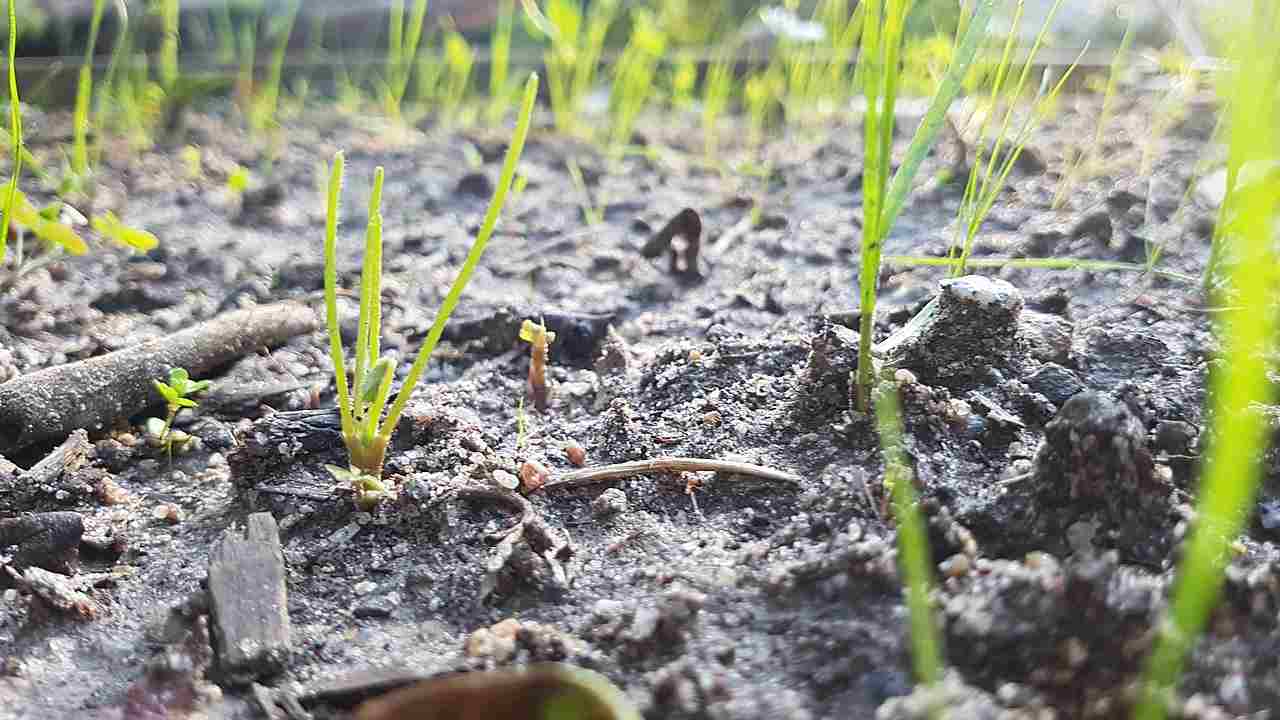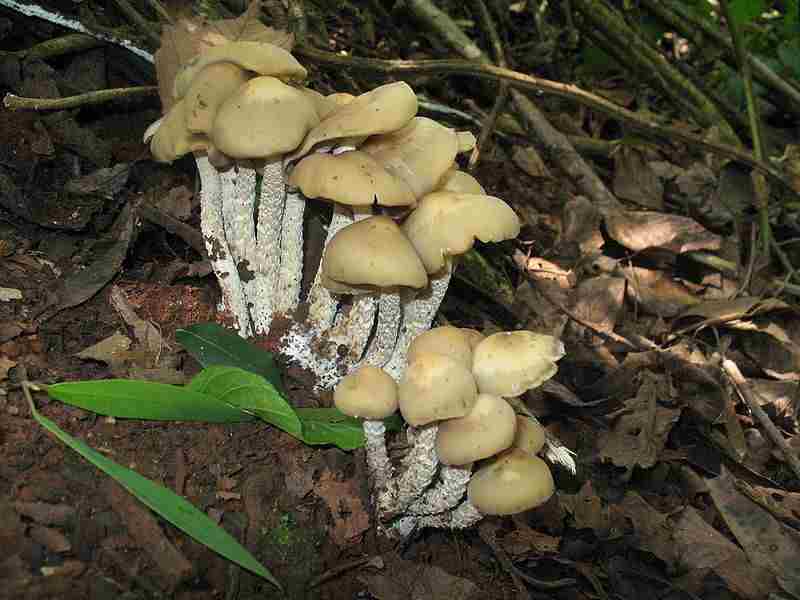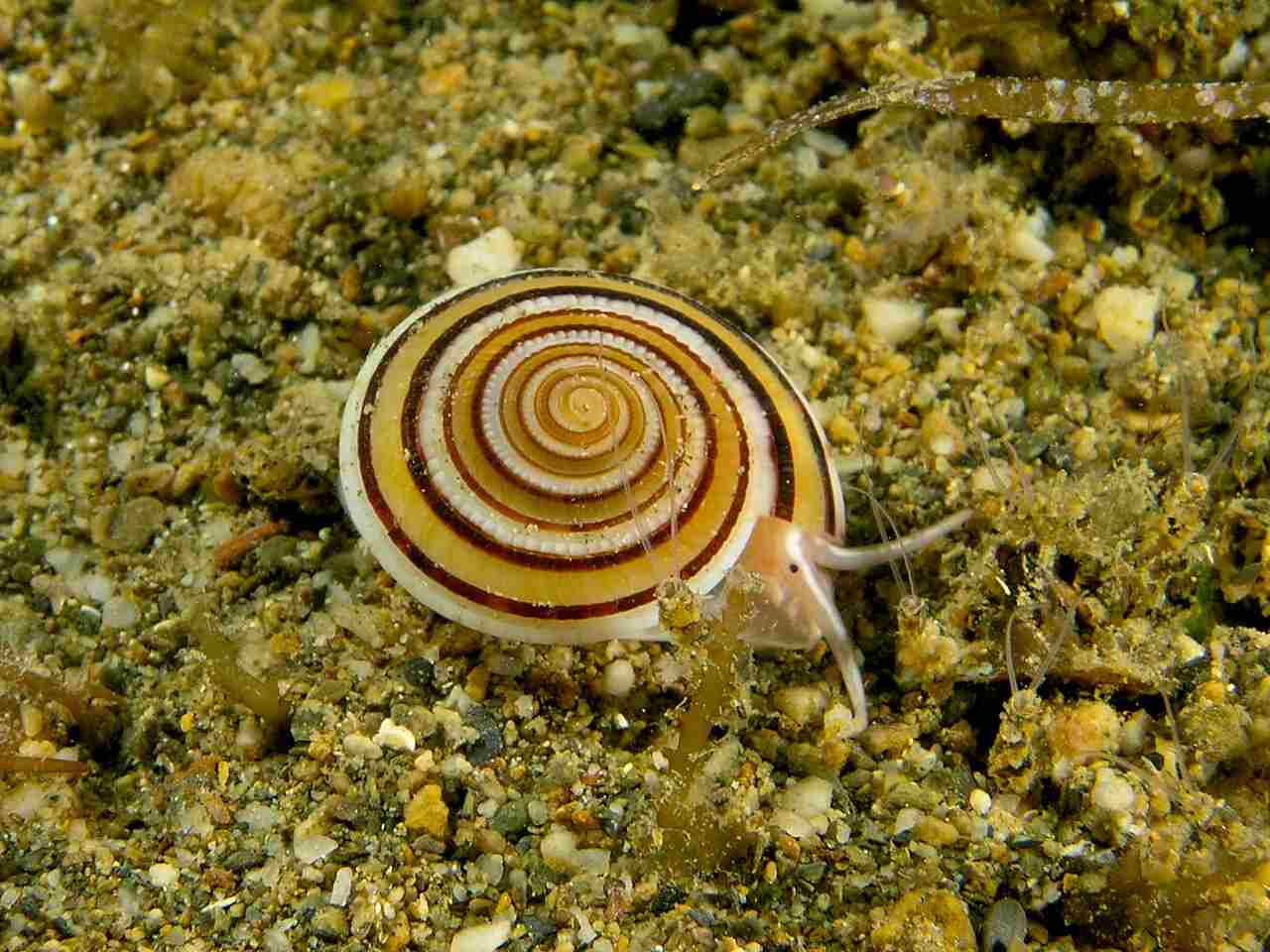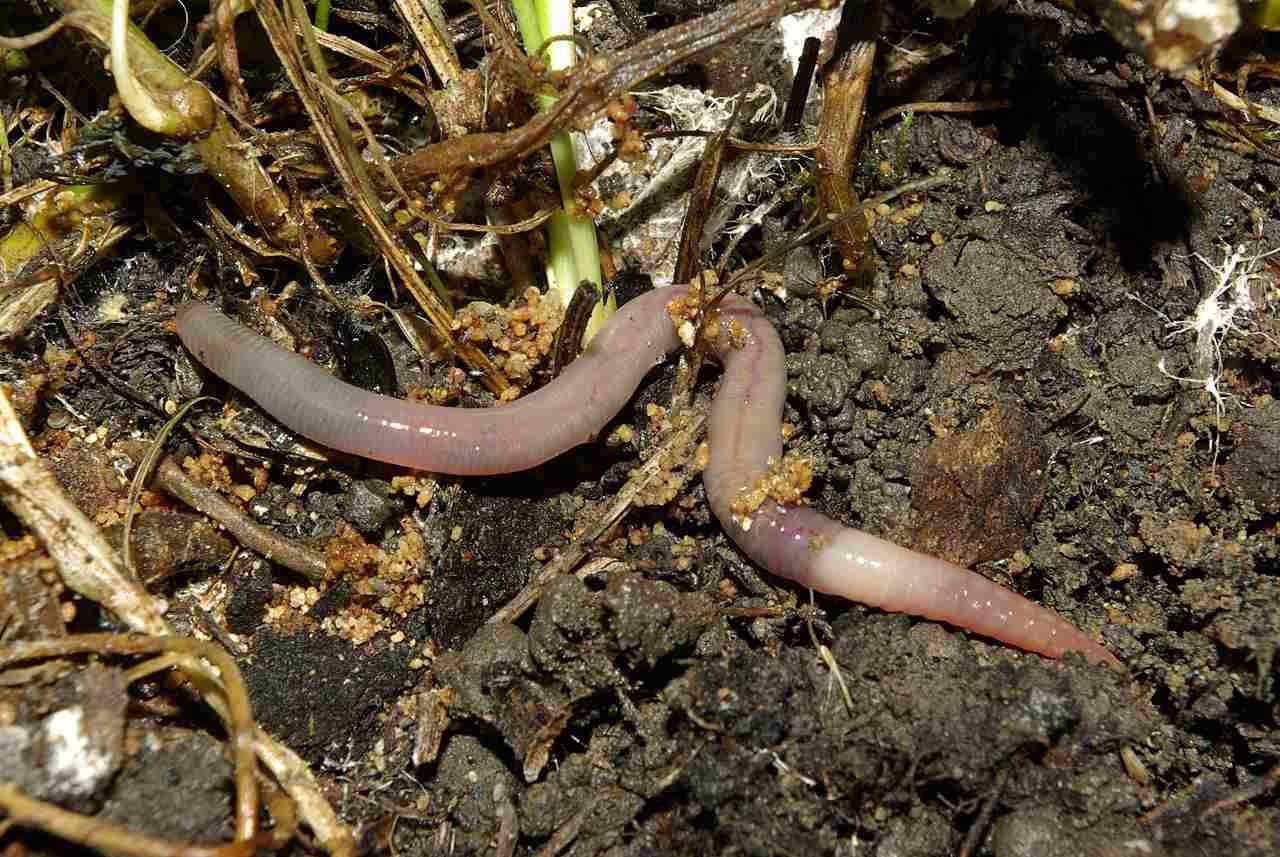What Is The Role Of Detritivores In The Soil? 15+ Answers
The role of Detritivores in the soil includes decomposing organic matter, recycling nutrients, improving soil structure, enhancing soil aeration, and promoting water infiltration. These organisms also increase soil biodiversity, break down complex compounds, contribute to humus formation, and facilitate nutrient cycling. They support plant growth, help control plant pathogens, reduce soil compaction, influence carbon cycling, stimulate microbial activity, participate in energy flow, and assist in organic waste degradation. Their activities ensure a balanced, healthy soil ecosystem, supporting both natural environments and agricultural systems.
1. Decompose Organic Matter
Detritivores play a crucial role in the decomposition of organic matter in soil ecosystems. These organisms, which include earthworms, millipedes, and certain types of insects, feed on dead plant and animal material, breaking it down into smaller particles. This decomposition process is essential for soil health, as it transforms complex organic matter into simpler compounds that can be further processed by other soil organisms like bacteria and fungi. The breakdown of organic matter by detritivores is the first step in the nutrient cycling process, making it possible for plants to access the essential nutrients they need to grow.
As detritivores consume and process organic matter, they also contribute to the formation of humus—a stable, organic component of soil that plays a key role in maintaining soil structure and fertility. The activity of detritivores ensures that dead plant material, fallen leaves, and other organic debris do not accumulate on the soil surface, allowing for a continuous cycle of decomposition and nutrient recycling. This decomposition not only benefits plant growth but also supports a diverse soil ecosystem, creating a habitat for a wide variety of organisms and promoting overall soil health.
2. Recycle Nutrients
Detritivores are instrumental in recycling nutrients within soil ecosystems. By consuming and breaking down organic matter, these organisms release essential nutrients like nitrogen, phosphorus, and potassium back into the soil, making them available to plants and other organisms. This nutrient recycling is critical for maintaining soil fertility and supporting plant growth. Without detritivores, organic matter would accumulate, and the nutrients within it would remain locked away, limiting the productivity of ecosystems.
Furthermore, the nutrient recycling facilitated by detritivores has a cascading effect on the entire food web. As detritivores process organic matter, they create nutrient-rich environments that support a diverse array of other soil organisms, including bacteria, fungi, and protists. These microorganisms, in turn, continue the decomposition process, further releasing nutrients into the soil. The ongoing cycle of nutrient recycling ensures that ecosystems remain sustainable and resilient, supporting a wide variety of plant and animal life.
3. Improve Soil Structure
Detritivores play a significant role in improving soil structure, which is crucial for plant health and growth. As these organisms consume and process organic matter, they create burrows and tunnels within the soil. This activity helps to break up compacted soil, allowing for better aeration and water infiltration. The improved soil structure also provides roots with an easier path to grow and access nutrients and water. This enhanced structure contributes to overall soil fertility, benefiting both agricultural systems and natural ecosystems.
The activity of detritivores also contributes to the formation of soil aggregates—clusters of soil particles bound together by organic matter. These aggregates increase soil stability and reduce erosion, which is especially important in areas prone to soil degradation. By improving soil structure, detritivores create an environment conducive to plant growth and the thriving of other soil organisms. This role in enhancing soil structure ultimately supports a healthier, more robust ecosystem.
4. Enhance Soil Aeration

Detritivores, through their burrowing and feeding activities, significantly enhance soil aeration. When detritivores like earthworms create tunnels in the soil, they increase the amount of air that can circulate through it. This enhanced aeration is crucial for soil health, as it provides oxygen to plant roots and other soil organisms. Oxygen is vital for root respiration and microbial activity, which in turn promotes healthier plant growth and nutrient cycling. The improved soil aeration created by detritivores fosters a more vibrant and productive soil ecosystem.
The benefits of enhanced soil aeration extend beyond plant roots. When soil is properly aerated, it reduces the risk of waterlogging and root rot, common issues in poorly aerated soils. It also promotes the activity of aerobic microorganisms, which play a key role in breaking down organic matter and recycling nutrients. By creating pathways for air to circulate, detritivores contribute to a more balanced and resilient soil environment, fostering conditions that support a diverse range of plant and animal life.
5. Promote Water Infiltration
The burrowing activities of detritivores are key to promoting water infiltration in soils. As detritivores create tunnels and passages, they provide pathways for water to penetrate deeper into the soil. This increased infiltration reduces surface runoff and helps retain moisture within the soil, which is beneficial for plant roots and soil organisms. Adequate water infiltration is essential for maintaining soil structure, reducing erosion, and supporting plant growth. Detritivores, by promoting water infiltration, contribute to a healthier and more sustainable soil environment.
Improved water infiltration also reduces the risk of soil compaction, a common problem in agricultural and urban settings where soil can become hard and impermeable. When soil is compacted, it prevents water from reaching plant roots and reduces the effectiveness of irrigation. Detritivores mitigate these issues by breaking up compacted soil and creating channels for water movement. This not only supports plant health but also reduces the need for excessive irrigation, promoting more sustainable land management practices.
6. Increase Soil Biodiversity
Detritivores contribute significantly to increasing soil biodiversity. By breaking down organic matter, they create a more heterogeneous soil environment, providing a variety of microhabitats for other organisms. This diversity in soil structure and composition attracts a wide range of soil-dwelling organisms, from bacteria and fungi to small invertebrates. The increased biodiversity resulting from detritivores’ activities fosters a more stable and resilient soil ecosystem, capable of adapting to environmental changes and supporting a wider range of plant species.
The presence of a diverse array of detritivores also contributes to the complexity of the soil food web. As these organisms consume and process organic matter, they provide food resources for predators and other higher trophic levels. This interconnectedness between different soil organisms creates a balanced ecosystem where each species plays a role in maintaining soil health and function. The increased biodiversity facilitated by detritivores ultimately benefits the entire ecosystem, leading to healthier plants, improved nutrient cycling, and greater ecological stability.
7. Break Down Complex Compounds
Detritivores are adept at breaking down complex organic compounds into simpler forms, a critical function in soil ecosystems. Organic matter in soil, such as dead plant material and animal remains, contains complex molecules like lignin, cellulose, and chitin. Detritivores possess specialized enzymes and digestive mechanisms that allow them to decompose these complex compounds, making them accessible to other soil organisms and plants. By breaking down these compounds, detritivores play a key role in the decomposition process, facilitating nutrient release and recycling.
The ability to break down complex compounds also contributes to soil structure and fertility. As detritivores process organic matter, they produce smaller particles that can be further degraded by microorganisms like bacteria and fungi. This ongoing decomposition and breakdown process contributes to the formation of humus, a stable organic component that enhances soil quality and fertility. By breaking down complex compounds, detritivores support the natural cycle of decomposition and nutrient cycling, which is essential for sustaining healthy soil ecosystems.
8. Contribute to Humus Formation
Detritivores play a significant role in the formation of humus, a key component of healthy soil. As detritivores consume organic matter, they produce smaller particles and waste products that contribute to the development of humus. Humus is a stable form of organic matter that helps retain moisture, improve soil structure, and store nutrients. The presence of humus is essential for maintaining soil fertility and supporting plant growth, and detritivores are critical contributors to its formation.
The process of humus formation also has broader benefits for soil ecosystems. By promoting the development of humus, detritivores help increase soil carbon storage, which has implications for carbon cycling and climate change mitigation. Humus also improves soil aggregation, reducing erosion and compaction while enhancing soil aeration and water infiltration. These benefits make the role of detritivores in humus formation essential for the long-term sustainability of soil ecosystems and the overall health of the environment.
9. Facilitate Nutrient Cycling
Detritivores are central to the process of nutrient cycling in soil ecosystems. By consuming organic matter and breaking it down into simpler compounds, they release essential nutrients back into the soil, where they can be taken up by plants and other organisms. This facilitation of nutrient cycling ensures that nutrients like nitrogen, phosphorus, and potassium are continuously recycled and made available for plant growth and other biological processes. Without detritivores, these nutrients would remain locked in organic matter, limiting the productivity and sustainability of ecosystems.
The facilitation of nutrient cycling by detritivores has wide-reaching effects on soil health and plant growth. As nutrients are released into the soil, they support a diverse range of organisms and contribute to the overall fertility of the ecosystem. The ongoing cycle of nutrient recycling promotes a balanced and dynamic soil environment, enabling plants to thrive and providing a stable foundation for the entire food web. Detritivores’ role in nutrient cycling is critical for maintaining soil productivity and ensuring the resilience of natural and agricultural systems.
10. Support Plant Growth
Detritivores significantly support plant growth through various mechanisms. By decomposing organic matter and recycling nutrients, they make essential elements available for plant uptake, promoting healthy growth and development. The activities of detritivores also contribute to improved soil structure, allowing plant roots to grow more easily and access both nutrients and water. This support for plant growth is crucial in both natural ecosystems and agricultural settings, where plant health directly impacts ecosystem stability and crop productivity.
In addition to providing nutrients and enhancing soil structure, detritivores contribute to a diverse soil ecosystem that supports plant health in other ways. By promoting soil biodiversity and creating a balanced ecosystem, they help control potential plant pathogens and pests, reducing the need for chemical interventions. Furthermore, the improved soil aeration and water infiltration resulting from detritivores’ activities contribute to healthier plant growth. Overall, the role of detritivores in supporting plant growth is essential for maintaining productive and resilient ecosystems, benefiting both nature and agriculture.
11. Help Control Plant Pathogens
Detritivores contribute to controlling plant pathogens by promoting a diverse soil ecosystem. As they break down organic matter, they create a rich environment that supports various beneficial microorganisms. These microorganisms often compete with or directly inhibit the growth of harmful pathogens, providing a natural form of disease control. Detritivores also enhance soil structure and aeration, reducing conditions that favor the proliferation of certain plant diseases. By helping to maintain a balanced soil ecosystem, detritivores play a crucial role in controlling plant pathogens and promoting healthier plants.
Another way detritivores help control plant pathogens is by decomposing dead plant material that could otherwise serve as a breeding ground for diseases. By rapidly breaking down this organic matter, they reduce the risk of pathogen buildup in the soil. This role in pathogen control contributes to a healthier ecosystem, allowing plants to grow with fewer disease-related stresses and reducing the need for chemical fungicides or other treatments.
12. Reduce Soil Compaction
Detritivores are instrumental in reducing soil compaction, a common problem in both agricultural and urban environments. Through their burrowing and feeding activities, detritivores break up compacted soil, creating a looser, more porous structure. This reduction in compaction enhances soil aeration and water infiltration, providing a healthier environment for plant roots and other soil organisms. By reducing compaction, detritivores support plant growth and promote a more dynamic and resilient soil ecosystem.
Reduced soil compaction also has broader environmental benefits. When soil is less compacted, it is less prone to erosion and surface runoff, reducing the risk of nutrient loss and soil degradation. Additionally, the improved soil structure resulting from detritivores’ activities helps retain moisture, reducing the need for excessive irrigation. By reducing soil compaction, detritivores contribute to more sustainable soil management and healthier ecosystems.
13. Influence Carbon Cycling
Detritivores have a significant impact on carbon cycling in soil ecosystems. By breaking down organic matter, they release carbon dioxide into the atmosphere, contributing to the carbon cycle. However, they also play a role in storing carbon in the form of humus, a stable organic component of soil. This balance between carbon release and storage is crucial for maintaining soil health and mitigating the effects of climate change. Detritivores’ influence on carbon cycling helps regulate carbon levels in the soil, contributing to a more sustainable ecosystem.
The role of detritivores in carbon cycling has broader implications for global climate systems. As they contribute to humus formation, they enhance soil carbon sequestration, which helps offset carbon emissions from other sources. By promoting a healthy balance in the carbon cycle, detritivores support sustainable soil management and contribute to climate resilience. Their role in influencing carbon cycling is essential for understanding the complex interactions between soil health and global climate processes.
14. Stimulate Microbial Activity
Detritivores play a significant role in stimulating microbial activity in soil ecosystems. As they break down organic matter, they create smaller particles and waste products that serve as food for bacteria and fungi. This stimulation of microbial activity is crucial for nutrient cycling and further decomposition processes in the soil. The increased microbial activity resulting from detritivores’ actions promotes a dynamic soil environment, supporting a wide range of organisms and contributing to overall soil health.
The stimulation of microbial activity also has direct benefits for plant growth and soil fertility. Microbes play a key role in converting nutrients into forms that plants can absorb, facilitating a more efficient nutrient cycle. Additionally, a diverse and active microbial community helps control soil-borne pathogens, contributing to healthier plant growth. By stimulating microbial activity, detritivores create a more balanced and resilient soil ecosystem, supporting both natural and agricultural environments.
15. Participate in Energy Flow
Detritivores are key participants in the flow of energy within soil ecosystems. By consuming organic matter, they convert it into smaller particles and organic compounds that serve as energy sources for other soil organisms. This energy flow is crucial for maintaining a dynamic and interconnected soil food web, where each organism plays a role in the broader ecosystem. As detritivores participate in energy flow, they support a complex network of interactions that drive nutrient cycling, decomposition, and other vital processes in the soil.
The participation of detritivores in energy flow also has implications for overall ecosystem stability. By converting organic matter into accessible energy sources, they create a more robust and resilient food web, capable of adapting to environmental changes. The energy flow initiated by detritivores supports a wide range of organisms, from microbes to higher trophic levels, contributing to a diverse and sustainable soil ecosystem. Their role in energy flow underscores the interconnectedness of soil organisms and the importance of maintaining a balanced and healthy soil environment.
16. Assist in Organic Waste Degradation
Detritivores are instrumental in the degradation of organic waste in soil ecosystems. Through their feeding activities, they break down organic matter, transforming it into smaller particles that can be further decomposed by other soil organisms. This degradation of organic waste is essential for reducing the accumulation of dead plant and animal material, preventing it from becoming a source of pathogens or other environmental problems. Detritivores’ role in organic waste degradation contributes to a cleaner and more sustainable soil ecosystem.
The assistance in organic waste degradation also has environmental and agricultural benefits. By breaking down organic waste, detritivores help recycle nutrients and reduce the need for synthetic fertilizers. This natural decomposition process also reduces the risk of soil contamination and pollution, promoting a healthier environment. By assisting in organic waste degradation, detritivores play a key role in maintaining soil health and supporting sustainable land management practices.
| Aspect | Description |
| Decompose Organic Matter |
Breaks down dead plant and animal material, initiating nutrient cycling and reducing organic buildup
|
| Recycle Nutrients |
Releases essential nutrients, enabling their availability for plant growth and other soil organisms
|
| Improve Soil Structure |
Creates burrows and tunnels, improving soil aeration and water infiltration
|
| Enhance Soil Aeration |
Burrowing and feeding activities increase soil air circulation, promoting root health
|
| Promote Water Infiltration |
Provides pathways for water to penetrate deeper into the soil, reducing compaction and runoff
|
| Increase Soil Biodiversity |
Supports diverse soil organisms by creating varied microhabitats
|
| Break Down Complex Compounds |
Decomposes complex organic molecules, aiding further degradation and nutrient release
|
| Contribute to Humus Formation |
Facilitates the creation of humus, enhancing soil structure and fertility
|
| Facilitate Nutrient Cycling |
Ensures the continuous recycling of nutrients for ecosystem sustainability
|
| Support Plant Growth |
Provides nutrients, improves soil structure, and promotes biodiversity
|
| Help Control Plant Pathogens |
Contributes to a balanced soil ecosystem that inhibits harmful pathogens
|
| Reduce Soil Compaction |
Breaks up compacted soil, promoting a healthier environment for plant roots and soil organisms
|
| Influence Carbon Cycling |
Balances carbon release and storage, contributing to soil carbon sequestration
|
| Stimulate Microbial Activity |
Encourages a diverse and active microbial community, supporting further nutrient cycling
|
| Participate in Energy Flow |
Converts organic matter into energy sources for other soil organisms
|
| Assist in Organic Waste Degradation |
Reduces accumulation of organic waste, promoting cleaner and more sustainable soil ecosystems
|












